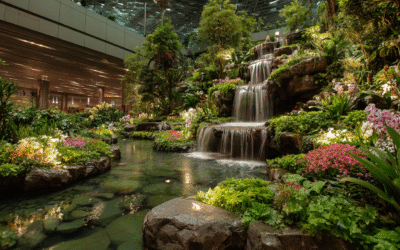It never ceases to surprise me how difficult hotels find it to create innovative packages for the luxury market. The Mandarin Orient have launched their Christmas package for $US130,000 which includes a limo service, diamond jewelry worth around US100,000, a diamond studded Christmas tree in the room, a gourmet dinner and the presidential suite.
Predictably, whilst they’ve had some enquiries, nobody has apparently booked the package.
Now I know that Christmas in Japan is somewhat different to Australia. Its less about family and more about romance and conspicuous consumption – overt shows of wealth and luxury. I also understand that in Japan the luxury market hasn’t really recovered yet but the super-rich market is alive and well and wasn’t really affected by the 1990s slump. However this package still just doesn’t make sense to me.
Whether you’re talking traditional luxury or new luxury, this market isn’t about simply packaging up things which are fairly prosaic in the guest’s day to day life. If a guest can afford a US130,000 room then most certainly they can afford to buy $100k of jewelry and most likely they’d want to choose what it was themselves not have it thrown into a package where they’re paying for it anyway.
For this market, limousines, gourmet meals & presidential suites are par for the course. A diamond encrusted Christmas Tree is different perhaps but hey if they really wanted one they are for sale easily in Tokyo so why would this motivate anyone to stay at a hotel?
The key to packages which work in this market is to find something which they can’t easily access themselves – and if humanly possible find something which money can’t buy (well not unless you’re Bill Gates anyway). Go out of the way to make the seemingly impossible happen – then they will part with the megabucks these packages try to achieve – and usually walk away feeling they’ve gotten value for their time there as well.



